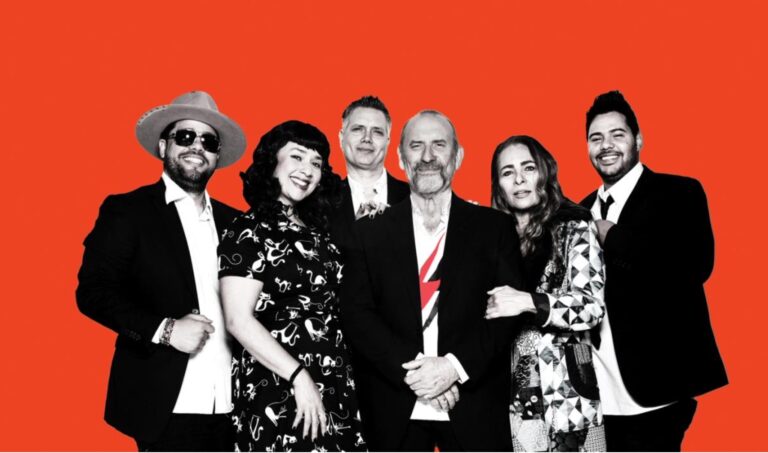
False stats used in ‘War on Drugs’

BY SARAH MCLENAGHAN
The drug related deaths of two people at Sydney’s Defqon music festival last weekend have led to calls for a drug policy focusing on safety and public health rather than punishment. It has been revealed data measuring the level of drug possession incidents occurring in NSW has been double-counted for the last seven years, calling into question the legitimacy of drug policing programs across Sydney. The significant oversight has resulted in the inflation of drug crime statistics commonly used to justify what advocates describe as an ineffective and harmful ‘war on drugs’.
Executive Director of NSW Bureau of Crime Statistics and Research (BOCSAR), Dr Don Weatherburn admitted “We overstated the number of drug possession offences by about 30 per cent”. The miscount occurred because of the police practice of recording an incident for every drug search conducted, as well as recording an incident for any charge or caution resulting from a positive test. BOCSAR had been recording each incident as a separate occasion.
Calculations by the office of Greens MLC David Shoebridge based upon BOCSAR’s own numbers, indicate 85,805 reported incidents of drug possession or use in NSW never happened. According to Dr Weatherburn the misreporting had a greater impact on perceptions of the amount of police activity than it would have had on perceptions of the amount drug use in NSW. “It’s basically a faulty measure of the level of police activity,” he said.
David Shoebridge said he was astounded the miscount had been allowed to continue for so long. “This is either a case of remarkable lack of self-awareness on the part of police or deliberate ignorance, and neither conclusion is attractive.”
Mr Shoebridge expressed particular concern the incorrect figures might have influenced government decision-making. “While much of the Liberal and Labor Parties’ approach to drug law is based on prejudice and shock jock politics rather than evidence, they do occasionally reference the evidence to support their arguments for more police, more drug dogs and harsher penalties,” he said. “Unfortunately, they have had this overinflated data to help them in that and drive NSW further down the wrong path on drug law policy.”
Greens Member for Newtown, Jenny Leong, shared her colleague’s concerns. “The reliance on BOCSAR statistics is crucial in terms of decisions around funding, resourcing and how policy is being changed and addressed.” Leong criticised the government’s funding of the NSW Police Drug Dog Detection program and its impact on locals. “What we know is that there is a complete overuse of sniffer drug dogs in certain areas of our city and that includes Redfern station, an area that has a high number of public housing tenants, a high number of students and young people, a high number of people from low socio-economic backgrounds and a high number of people that are Aboriginals,” she said.
The unrestricted use of sniffer dogs has been carried out despite figures which suggest that drug dogs falsely indicate the presence of drugs between 64 to 72 per cent of the time. “It is unacceptable to see a scenario where we see the ineffective and inaccurate sniffer drug dog program being rolled out in a community that actually wants better community policing to address issues like domestic violence, issues like harassment,” said Leong.
The drug dog program is not the only police practice that has been called into question in light of the findings. Samantha Lee, Head of the Police Accountability Practice at Redfern Legal Centre, believes the error has driven an increase in the number of strip searches conducted on young people in NSW. Ms Lee states, “Our practice has spoken to a number of young people who felt absolutely humiliated after having to undergo a demeaning strip search upon trying to enter a music festival, with no drugs being found. “Statistics reveal that our clients are not alone in this, with no drugs found on 10,224 (64 per cent) others subjected to a search last year.”
Dr Weatherburn said that BOCSAR are committed to ensuring that an error like this does not happen again. He explained, “We have a lot of plans in place, not the least of which is every quarter to compare what we’ve got with what the police have to make absolutely sure if there are any discrepancies we can investigate them”. While some believe a further response needs to come from government through an overhaul of drug policy and resourcing across NSW, after the Defqon deaths it seems unlikely there will be anything other than more crackdowns from Macquarie Street.
Independent Member for Sydney, Alex Greenwich, said “Irrespective of the data, we cannot police and arrest our way out of problematic drug use”.
He suggested Australia look to Portugal’s decriminalisation of drugs as a way forward and pledged his support to “evidence-based drug policies” which put resources into drug use as a health issue and redirects police to drug trafficking and dealing.









